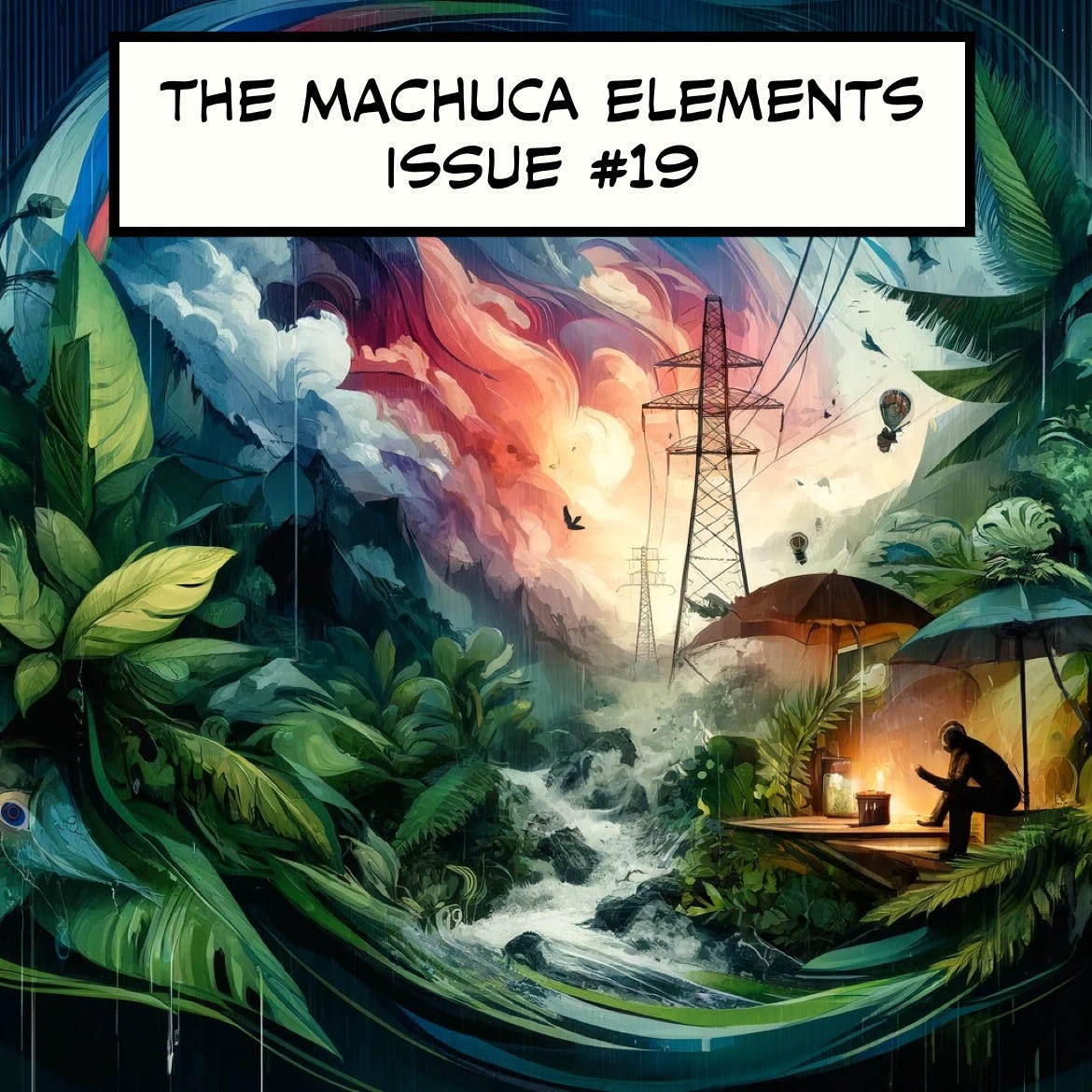Last week, ICE teased us with the possibility of electricity rationing. The rainy season was late to arrive, water levels were low, and there just wasn’t enough “hydro” to generate enough “electric.” The power was going to be shut off for a few hours each afternoon.
Machuca Valley expats started drawing up plans with a level of preparation similar to the invasion of Normandy — charge batteries overnight, work during the morning, use up as much data from your cellular plan as possible, then castigate yourself for choosing to live in a jungle as you wait for the power to return.
Then, as if hearing our collective cries to keep our laptops aglow, our air conditioning humming, and our kombucha refrigerated, the skies opened up and delivered a shit ton of rain. (That’s the technical measurement. Ask Anton — he’s got a weather station.)
Rationing was canceled. To celebrate, I turned on all the lights and streamed a Netflix show in the background while running a single T-shirt in the dryer, just because I could.
And yet…part of me longed to be forced to turn off my regularly scheduled programming.
The Balinese do this every March on Nyepi, the “Day of Silence.” Power is cut off across the island and everything is closed. No lights. No working. Some people don’t even eat. The airport literally shuts down for 24 hours. Instead, people on the island spend the day in quiet self-reflection. It’s like an island-wide meditation retreat, but it’s not just for individuals’ wellbeing — it’s about giving the earth a day off as well.
The Amish take things a step further, severely curtailing the use of technologies to maintain a cohesive culture. The view is that, as much as electricity can connect them to the outside world, it can disconnect them from their communities.
In both of these cases, people expect the lights to be off. Moreover, most of the people they interact with also expect the lights to be out. Rare is the Amish farmhand who needs to get on the company Slack channel to explain what’s going on.
Unplanned outages can be more jarring — and even dangerous. I lived in Sudan’s capital, Khartoum, when it was the hottest city on earth for a month straight: 45 degrees Celsius (roughly 8,000 degrees Fahrenheit for you Americans). The heat strained the electrical grid so much that one day the power went kaput. The taps also went dry. I fainted when I got out of bed to search for water. Though I wouldn’t recommend this Saharan adventure to others, it was a lesson in how dependent we are on external systems to abstract away the process of our survival.
Most of the time, however, unplanned electricity outages aren’t life-threatening. A friend of mine longingly recalls an extended blackout in San Diego. Unlike Nyepi, it didn’t spark much self-reflection. But the outage did spark more than one communal bong as the city’s denizens came out of their darkened homes to look at the stars and gather with neighbors, often for the first time. Rather than cheer the eventual return of electricity, many people yearned for a bit more time offgrid.
My point is not to minimize the inconvenience of power cuts. As a remote worker, I’m one of those people who must work to, ahem, keep the lights on. And a couple of hours at elevated temperatures is truly something to sweat over for people with medical conditions. But our collective groans at losing a few hours of electricity demonstrate how dependent we all are on technology.
Ironically, we sell technologies to ourselves as ways to increase our independence. Cars help us freely move around; computers enable us to work from anywhere; lights extend our days and our flexibility.
All good things.
But not the only things. When we are not able to escape into our machines, we are forced to look into ourselves for creativity and toward neighbors for company. Whether it’s planned (like a morning meditation) or out of the blue (like a thundershower in the dry season), going without power is a chance to recharge our minds, our bodies, and our souls.
That may seem obvious. Didn’t some of us move here to get away from modern life and embrace nature, inner growth, and community? Exactly.
So don’t take this opportunity for granted. What do you think it is? Electricity?
— Jeff Benson




